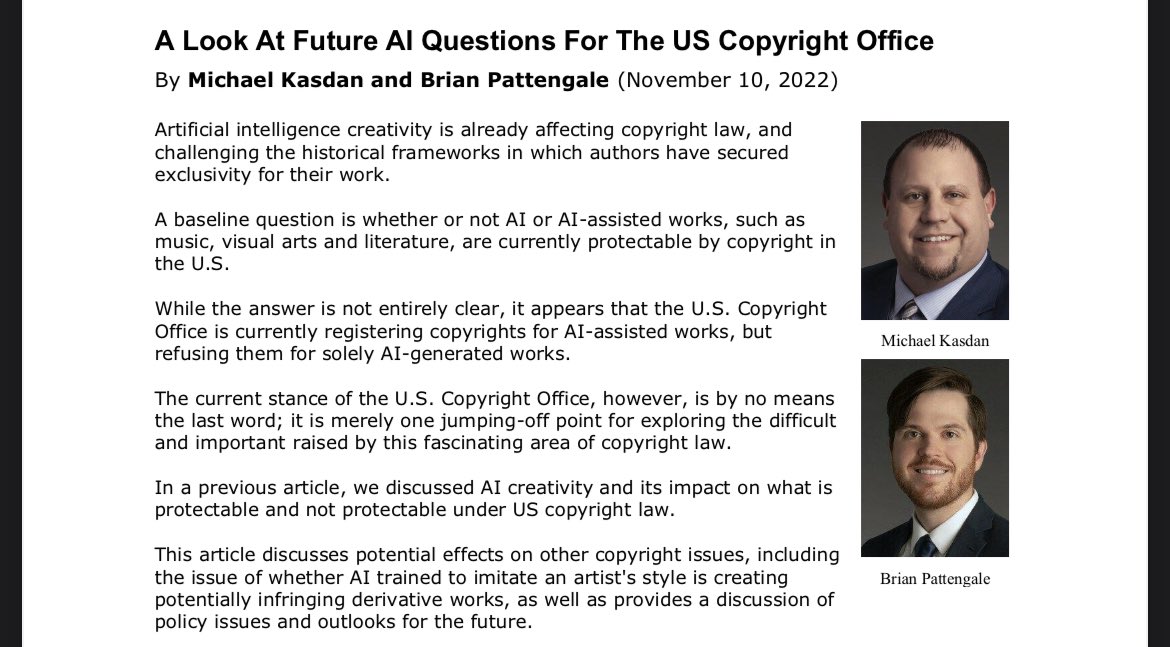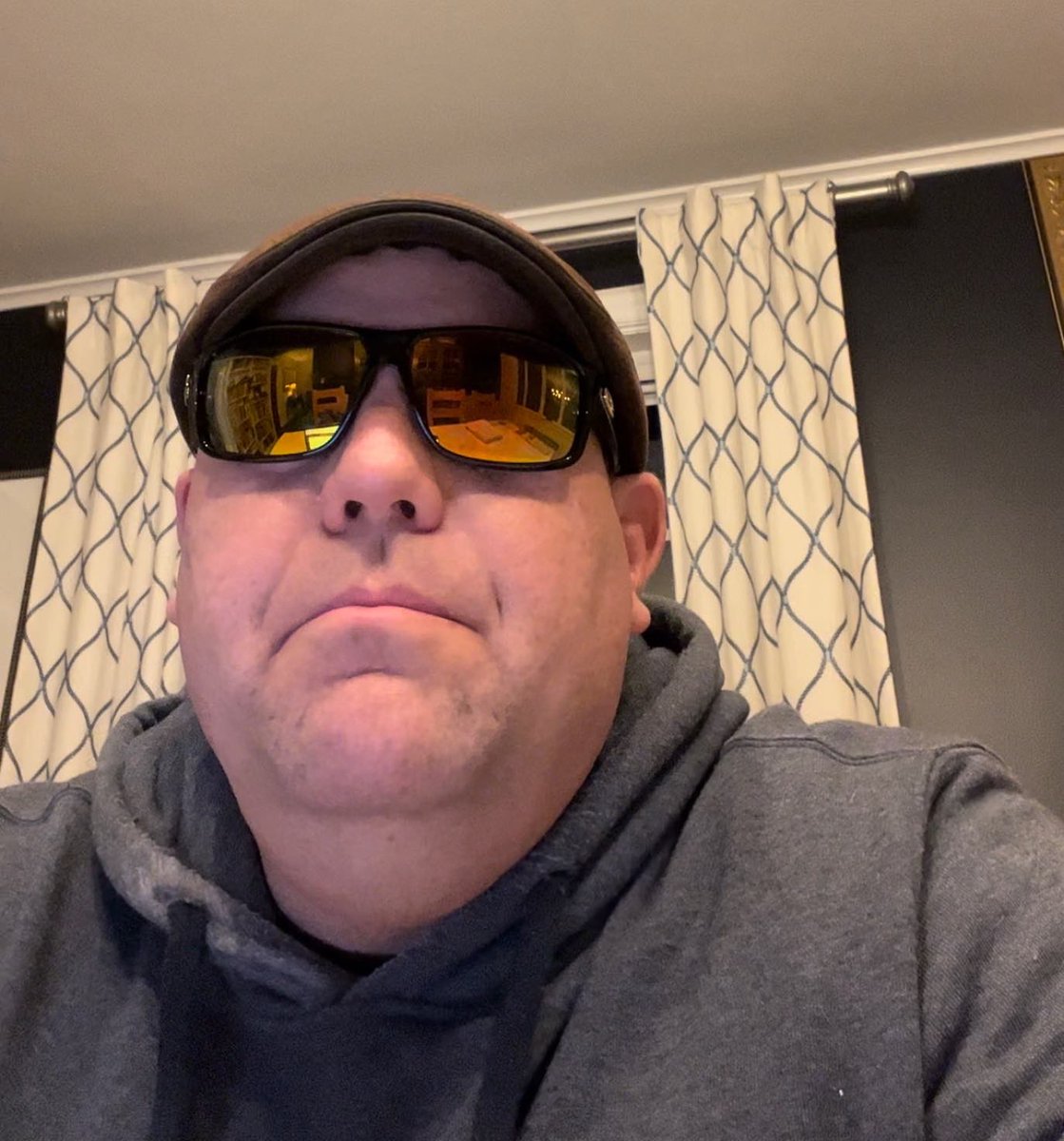
THEEAD 🧵 Another new lawsuit was filed today against Stability AI, the makers of Stable Diffusion generative AI software. The Plaintiff in this case is Getty Images.
/1
/1

This isn’t the first lawsuit against Stability AI and other generative AI app makers.
/2
/2
https://twitter.com/michaelkasdan/status/1614397752733061120
It’s not even the first lawsuit by Getty Images. Getty has already initiated a data scraping lawsuit in the UK on there issues.
/3
/3
https://twitter.com/michaelkasdan/status/1615485217694969856
Begun the AI Wars have, indeed.
/4
/4
https://twitter.com/michaelkasdan/status/1615486807788986371
This latest lawsuit includes both copyright claims and trademark claims. I’ll break down this latest Complaint and these claims below.
/5
/5
For those interested in taking a read, the full complaint is available here. 🙏 @copyrightlately for sharing it here.
/6
/6
https://twitter.com/copyrightlately/status/1621667685485641729
Getty starts things off with a bang 💥 in Par 1 alleging that “Stability AI has copied more than 12 million photographs from Getty Images’ collection, along with the associated captions & metadata, without permission from or compensation” to build a competing business.
/7
/7
The “copying “is alleged on information and belief. 🤔 Which may be nothing. But is “copying”really what happens when using a dataset to train AI or with stable diffusion? I’m not so sure. Certainly from the explanation in Andersen et al….it’s more nuanced.
/8
/8
Getty Images next makes the point that Stability AI is no small player. They are a big boy. And they could have sought a license to Getty Images photo datasets and didn’t. And that they’re building a competitive business of images to Getty using Getty’s own IP.
/9
/9

Notably, other large photo data set companies like Shuttetstock have entered into licenses for access to their data for training AI.
/10
venturebeat.com/ai/why-are-get…
/10
venturebeat.com/ai/why-are-get…
As far as I know, Getty has not signed such a license with anyone.
Why?
Could be they don’t want to license to help create a would-be competitor image platform or it could be that Getty wants a lot more money than folks are willing to pay for a license.
/11
Why?
Could be they don’t want to license to help create a would-be competitor image platform or it could be that Getty wants a lot more money than folks are willing to pay for a license.
/11
As others analyzing AI related claims have noted, it is helpful to think about claims relating to the input side of AI as well as the output.
Here, on the input side the allegation is for copyright infringement for scraping copyrighted data without permission.
/12
Here, on the input side the allegation is for copyright infringement for scraping copyrighted data without permission.
/12

Interestingly, this is the first case I’ve seen pursuing a trademark related theory for the output.
In Andersen et al., the plaintiffs alleged copyright infringement arguing it the output in a particular artists style was an infringing derivative work.
/13
In Andersen et al., the plaintiffs alleged copyright infringement arguing it the output in a particular artists style was an infringing derivative work.
/13

But here in Getty Images, the argument is that the output is a trademark infringement, because the output could include a modified version of the Getty watermark, which confuses customers as to source or association.
/14
/14

First reaction is that this is creative but it may be tough to ultimately establish consumer confusion, which is the touchstone of trademark infringement claims.
Of course this is a factual issue and it depends on what the evidence will be.
/15
Of course this is a factual issue and it depends on what the evidence will be.
/15
Trying a non-copyright theory may also be a tacit strategic recognition that copyright claims in these AI cases have some difficulties of their own, including the likely defense that the output is not an infringement but a transformative fair use.
/16
/16
The Complaint goes on to explain Getty Images sophisticated large scale high end photo licensing business.
/17
/17

It also describes its IP supporting that business, including both copyrighted images and the Getty trademarks.
/18

/18


Getty also described the terms & conditions of its website, which prevent scraping, copying etc. as a matter of contract.
As noted in other threads, cases like Google/Rap Genius (which may go up on cert to SCOTUS) concern whether and when copyright law preempts such terms
/19
As noted in other threads, cases like Google/Rap Genius (which may go up on cert to SCOTUS) concern whether and when copyright law preempts such terms
/19

As to the copyright claim, the Getty Complaint describes the operation of Stable Diffusion similarly to the Andersen et al Complaint, including that it involves first copying images and that they relied on the German entity, LAION.
/20

/20


This raises a few questions. First, it will be interesting as to whether Stability AI agrees with the description of how Stable Diffusion works. Second, if Stability got the training data set from LAION did Stability do any “copying”?
/21
/21
Also, under German law was LAION allowed to do what it did in putting the data set together or was their some IP violation?
Could be these issues are why Getty alleged that Stability and LAION are in cahoots: “ works in conjunction with and is sponsored by Stability AI.”
/22
Could be these issues are why Getty alleged that Stability and LAION are in cahoots: “ works in conjunction with and is sponsored by Stability AI.”
/22
Getty also includes an interesting example on the harm of the alleged copyright infringement that illustrates how by using Getty text and meta data associated with the Getty images, Stability AI can create images that more effectively competes with Getty:
/23
/23

As for the trademark claim, this is based on the presence of distorted versions of the Getty Images watermarks that appear to be artifacts of running Stable Diffusion on a data set with watermarked images. Here are some examples:
Getty alleges this creates TM confusion.
/24

Getty alleges this creates TM confusion.
/24


Based on these factual allegations, the legal claims in Getty Images vs Stability AI include copyright infringement, removal of copyright management information, trademark infringement, trademark dilution, and associated unfair competition claims.
/25
/25

Hope this breakdown was useful. Thanks for reading!
It will be interesting to see where this one and the other cases asserting IP claims against AI apps go!
/26
/END
It will be interesting to see where this one and the other cases asserting IP claims against AI apps go!
/26
/END
. @threadreaderapp unroll
• • •
Missing some Tweet in this thread? You can try to
force a refresh












